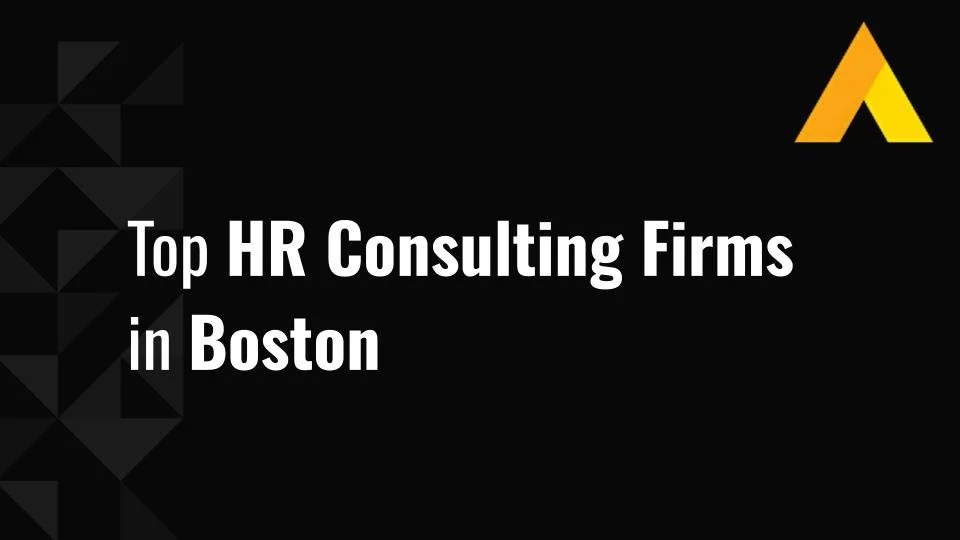Top 12 Talent Management Consultants and Consulting Firms (2026 Edition)
Talent is the force that powers innovation, productivity, and long-term success. And it’s not just talk, companies that invest in strong talent strategies win big. In fact, a McKinsey survey found that 99% of organizations with highly effective talent management reported outperforming their competitors, compared to just 56% of others.
As businesses face rapid transformation, talent management consulting firms have become essential partners in attracting, developing, and retaining top-tier professionals.
In this article, we’ll explore the top talent management consulting firms and the value they can deliver for your organization.
Let’s get started.
P.S. Looking to strengthen engagement as well as talent strategy? Don’t miss our roundup of the Top Employee Engagement Consultants and Consulting Firms to find partners who help teams thrive.
Top 5 Talent Management Consultants and Consulting Firms TL;DR
Alpha Apex Group: Delivers one of the best end-to-end talent management approaches, seamlessly linking strategy, hiring, development, and HR strategy and technology. Alpha Apex Group stands out for speed, skills-based execution, and measurable business impact that puts them among the best in the field.
Boston Consulting Group (BCG): Partners with enterprise leaders to build people strategies that drive innovation and revenue. Their data-driven, tech-integrated approach turns workforce planning and leadership development into a lasting competitive edge.
Development Dimensions International (DDI): Specializes in leadership assessments and development backed by rigorous behavioral science. Their simulation-based tools and analytics help companies identify and grow future leaders with precision.
Accenture: Uses deep tech expertise and people strategy to solve talent gaps at scale. Their AI-driven platforms, cloud solutions, and capability centers help companies plan ahead and adapt quickly in fast-changing markets.
The Talent Strategy Group: Strips away talent management complexity with practical, evidence-based tools that busy leaders can use right away. They focus on behavior-based routines and critical role clarity to deliver high-impact talent systems.
The Importance of Talent Management Consulting
Talent management consulting converts workforce insight into revenue growth and risk control. Instead of flying blind, leaders get clear metrics on skills, engagement, and succession so they can act before profit or compliance suffers.
The scale of the challenge is huge. According to Deloitte’s Global Human Capital Trends study, only 3% of companies are “extremely effective” at capturing the value their people create.
That’s where consultants come in with tools like role architectures, skill forecasts, and engagement dashboards that help spot hidden inefficiencies and guide smarter investments.
And when engagement goes up, performance follows. Gallup’s latest meta-analysis of more than 183,000 business units shows teams in the top-quartile for engagement generate 23% higher profitability than bottom-quartile peers. Talent consultant teams apply manager coaching, feedback loops, and reward redesign in short sprints that lock in those profits while preserving culture.
There’s also a growing compliance side to consider. Hybrid work can hide succession gaps, and forthcoming SEC rules will require auditable human-capital disclosures. Consultants help companies prepare by building solid data trails, benchmarking workforce costs against peers, and stress-testing succession plans. This reduces compliance exposure and clarifies investment priorities.
At the end of the day, great talent consulting turns your people strategy into a competitive edge. It transforms human capital into a measurable asset that drives growth, strengthens resilience, and builds investor confidence.
Key Trends Shaping Talent Management Consulting in 2026
As we move through 2026, talent management consulting is evolving faster than ever, driven by tech, strategy shifts, and new workforce expectations.
Here’s what’s shaping the space right now:
1. AI-Powered Talent Decisions
AI isn’t a “nice to have” anymore; it’s quickly becoming standard. A Korn Ferry survey found that 22% of companies now use AI for external pay benchmarking, while 63% are considering it.
Across the board, talent consultants are leaning into AI to deliver faster, sharper insights, from salary benchmarks and bias detection to workflow automation. But it’s not all machine-driven; human oversight is key to keeping these decisions fair and ethical.
2. Focus on Critical Skills & Upskilling
The shift toward skills-based talent management is real. Corporate Navigators reports that 32% of organizations are actively focusing on upskilling to close skill gaps. Consultant firms are now helping companies identify and evaluate candidates’ unique skills earlier in the hiring process to increase precision and speed.
They are also designing flexible frameworks that prioritize practical skills and future learning paths over bulky resumes.
3. Human-Centric Employer Value Propositions (EVP)
Consulting now stresses balancing human needs with business goals. Deloitte puts it well, modern EVPs need to show that “AI is a friend, not a foe,” while also helping managers adapt to changing employee expectations.
There’s also a stronger focus on embedding Environmental, Social, and Governance (ESG) principles and employee well-being into talent strategies, making them more aligned with both purpose and people.
4. Data-Driven Workforce Analytics
Smart consulting uses data like a sixth sense. Aura reports that workforce intelligence tools and predictive analytics are becoming "table stakes" in consulting RFPs. Firms are now expected to bring insights powered by AI, whether it’s labor flow modeling, evaluating succession readiness, or running advanced diagnostics on workforce trends.
Yet there’s still a major gap to fill. Deloitte’s research shows that 83% of companies have low analytics maturity in HR. This creates a big opportunity for consultancies to step in and lead the way with more advanced, actionable data strategies.
5. Demand for Specialized Expertise
Clients are ditching the generic consultant in favor of specialized ones. Experts in AI compensation, DEI, remote workforce, and gig economy are in high demand. One report highlights that consulting firms are actively onboarding AI leadership roles at 40%-60% year-over-year growth.
6. Pay Transparency & Compensation Governance Goes Mainstream
New regulations (especially in Europe) are accelerating the move toward clearer and more structured pay practices. Talent consultants are increasingly engaged to design defensible salary architectures, including job leveling, pay bands, equity diagnostics, and clear communication strategies that strengthen internal trust.
The readiness gap remains significant.
Aon’s Global Pay Transparency Study shows that only 19% of companies feel prepared for pay transparency, which explains the growing demand for consultancies to lead full-scale compensation governance and implementation efforts.
As these trends reshape expectations, only a select group of consulting firms is truly equipped to lead the way.
And that leads us to our main section:
Top 12 Talent Management Consultants and Consulting Firms
Let’s take a look at the firms that are setting the pace in talent management consulting today.
Alpha Apex Group treats talent management as a single, connected journey. The team starts by mapping your growth targets to the skills you need, then folds in recruiting, onboarding, leadership development, and HR tech so the whole system runs in sync.
You feel the pace right away. New, pre-screened candidates reach hiring managers within 72 hours, and their hiring process is 60 percent faster than the US average time-to-fill.
Once people are on board, Alpha Apex designs performance frameworks, engagement programs, and succession plans that keep talent growing alongside the business. They align with wider market shifts as well: 75% of companies are moving toward hiring based on skills, which is why Alpha Apex bakes skills analytics into every project.
What sets them apart? Their consultants come from HR, IT, and operations backgrounds, so they can fine-tune an HRIS rollout one week and run a manager coaching session the next, always tying talent moves back to culture and revenue goals.
Industries: Aerospace, Engineering, Agriculture, Accounting/Finance, Insurance, Architecture, Automotive, Aviation, Beauty/Fashion/Wellness, BioPharma/Biomedical, Building Materials, Casino & Gambling, Chemicals, CPG (Consumer Packaged Goods) and among others.
Notable clients: SEMrush, Zendesk, Skanska, Meta, Siemens, Wiley.
Key services:
Talent strategy consulting and workforce planning
Executive search, rapid recruiting, and seamless onboarding
Leadership development and succession planning
Performance management and employee engagement programs
HR technology consulting, including HRIS and AI-driven analytics
Why work with Alpha Apex Group?
With Alpha Apex, you get the best of both worlds: broad capabilities paired with boutique-level care. The same advisors who craft the plan also execute it, so ideas turn into hires, tools, and measurable wins without juggling extra vendors. If you want hiring, development, retention, and culture running on one clear playbook, Alpha Apex is ready to deliver.
Boston Consulting Group is a global consulting firm with proven skills in people strategy and talent management. The firm partners with large companies to help them anticipate, attract, grow, and retain the right people, weaving new tech into every step.
BCG advisors sit with CEOs and CHROs to build what they call a “differentiated people advantage,” blending hard data with a clear view of human potential. Their own research shows that companies excelling in leadership and talent management grow revenue 2.2× faster.
In real projects, BCG has reshaped workforce planning, leadership paths, and culture so employees feel engaged and ready to innovate. Whether you need a full digital HR transformation, a future-proof succession plan, or stronger skill-building systems, BCG delivers practical playbooks and hands-on support to bring them to life.
Industries: Aerospace and Defense, Automotive, Consumer Products, Education, Energy, Financial Institutions, Health Care, Industrial Goods, Insurance, Principal Investors and Private Equity, Public Sector, Retail, Technology, Media, and Telecommunications, Transportation and Logistics, Travel and Tourism, Urban Planning.
Notable clients: Pandora, Delhi Metro Rail Corporation, British Airways, L’Oréal.
Key services:
Leadership development and executive coaching
Talent and skills strategy tied to business goals
Digital HR transformation and tool integration
Workforce planning, upskilling, and always-on learning
Why work with Boston Consulting Group?
BCG pairs global research with on-the-ground coaching so talent management programs turn into real business wins. Their team works side-by-side with your leaders to develop solutions that fit your culture and bottom line.
DDI has spent 50+ years helping companies use rigorous science to spot and grow leadership talent. With a team of more than 100 industrial-organizational psychologists, DDI designs assessment centers, lifelike simulations, and custom competency models that turn abstract leadership traits into measurable skills.
Their science-backed approach fits right into any forward-looking talent management strategies. It links potential to performance through hard data. For example, after a major merger, one global client partnered with DDI and developed 1,000+ leaders while building a stronger bench across the business.
Learn more about this case in the video here:
Today, DDI supports more than 2,500 organizations worldwide, improving succession pipelines, leader readiness, and engagement by grounding every decision in validated research and analytics. When companies need to align leadership criteria with strategic goals, DDI’s simulations and targeted feedback give managers a clear path from insight to action.
Industries: Manufacturing, Healthcare, Technology, Finance, Engineering, Energy, Professional Services, and other multinational sectors across both services and industrial markets.
Notable clients: Hitachi Energy, Endbridge, Caterpillar, Commvault.
Key services:
Leadership assessments using simulations and 360 feedback
Leadership development programs and workshops
Succession planning and high-potential identification
Behavioral interviewing training and hiring assessments
Competency modeling and leadership strategy consulting
Why work with DDI?
DDI brings decades of research and proven analytics to every project, so leadership decisions rely on evidence rather than guesswork. Their PhD-designed tools create quick wins and lasting behavior change, making DDI a trusted partner for companies that want a stronger leadership pipeline and measurable business impact.
4. Accenture
Accenture helps companies line up their people and technology to drive real results. Its talent management practice sits right at the intersection of human potential and digital innovation. By using AI and deep data, they spot skill gaps, shape learning paths, and guide workforce planning.
Leaders today see talent shortages as the #1 threat to growth, so Accenture builds cloud-based tools that predict talent needs before they become problems. Their culture diagnostics uncover friction points fast while AI skill platforms recommend training and fresh hires.
The team routinely reworks operating models and Human Resources at scale. One proven strategy is the Global Capability Center, a dedicated hub that Accenture helps companies design to tap into specialized talent. It’s a fast-growing trend: 71% of companies plan to make moderate to significant investments in developing their capability centers within the next year.
Accenture brings the same high standard across regions. Whether you need a fully remote learning platform, an org design for a digital pivot, their approach stays practical and people-first.
Industries: Aerospace and Defense, Automotive, Banking, Capital Markets, Chemicals, Communications and Media, Consumer Goods and Services, Energy, Health, High Tech, Industrial, Insurance, Life Sciences, Natural Resources, and others.
Notable clients: Project STOP, WWF Germany, Sumitomo Metal Mining, Noli.
Key services:
Leadership development and culture transformation programs
Global capability centers that open new candidate pools
AI-powered skills assessment and workforce planning tools
HR transformation, change management, and organizational design
Why work with Accenture?
Accenture has global reach and digital depth. They roll out solutions across continents smoothly while weaving analytics and AI into every decision. Clients choose Accenture because they pair human insight with digital horsepower, so talent strategies run smarter and scale faster.
The Talent Strategy Group is a boutique consultancy that keeps talent management straightforward and backed by science. Their team cuts through HR red tape with practices that busy leaders can use right away.
Every project starts with a hard-hitting audit that maps out the strengths and gaps in your people systems. From there, they design lean, behavior-based routines that mirror how humans actually work. A signature tool is OPTM 360, an assessment tool that gives leaders crystal-clear, prioritized feedback so they know exactly what to fix first.
The firm also helps HR craft a transparent talent management philosophy so managers can explain decisions in plain language. Because the group ties talent management work directly to business goals, they push clients to identify roles that matter most. Their research shows 86% of companies now map critical roles, proof that clarity drives results.
Industries: Financial Services/Insurance, Technology, Services, Entertainment, Retail, Media, Consumer Products, Pharmaceutical, Manufacturing, Transportation, Not-for-Profit/NGO/Government, Oil/Gas/Chemicals
Key services:
Evidence-based HR and talent strategy audits
Simple, behavior-focused talent management practices
Talent strategies that link straight to business goals
360-degree leadership assessments and talent philosophy development
Why work with The Talent Strategy Group?
If you want sharp, science-backed talent solutions that actually get used, this team delivers. They turn deep research into practical tools leaders can use effectively, giving you a talent strategy that is clear, psychology-backed, and tied to results without the corporate fluff.
6. Bain & Company
The firm’s talent management team builds future-ready systems that cover upskilling, leadership pipelines, and data-driven workforce planning. They focus on outcomes rather than process checklists because impact matters more than process.
Since 2000, Bain has completed more than 4,000+ organizational projects and uncovered 5% to 30% cost savings through smarter talent strategies. Their consultants tap into Bain’s award-winning culture to help clients build workplaces where performance and engagement go hand in hand.
With experience across every major industry and a deep analytics toolkit, Bain makes sure each talent management action delivers measurable value. Clients turn to them to map critical skills, build succession charts, and roll out learning platforms that last. The firm blends qualitative insight with advanced people analytics so leaders see exactly where to invest.
They also run an active YouTube channel where they share insights on strategy, leadership, and talent management:
Industries: Aerospace & Defense, Agribusiness, Chemicals, Construction & Infrastructure, Consumer Products, Financial Services, Healthcare & Life Sciences, Industrial Machinery & Equipment, Media & Entertainment, Metals, Mining.
Notable clients: NatWest, Virgin Australia, Athena Pathway, The Hera Group
Key services:
Talent strategy and workforce planning
People analytics and performance optimization
Leadership development and succession planning
Culture transformation and change management
Why work with Bain & Company?
Bain pairs world-class expertise with a hands-on, collaborative approach. Their consultants co-create solutions on-site and track measurable outcomes, like cost savings, productivity gains, and ROI, so talent strategy delivers clear business value.
7. Eagle Hill Consulting
Eagle Hill Consulting is a firm that keeps talent management personal, practical, and grounded in what works. Their people-first approach pairs empathy with sharp data so every recommendation fits your culture. From hiring to leadership development, they use targeted analysis to shape the entire employee journey.
Eagle Hill often partners with government agencies and complex enterprises, turning broad talent ideas into clear steps that matter. A standout tool is their proprietary Employee Retention Index, which spots turnover risks before they flare up.
In fact, they helped a federal agency launch an effective enterprise recruiting program in just 3.5 months. Across projects, the firm draws on rich insights from its talent management strategy work to design engaging, high-performing workplaces.
Moreover, Eagle Hill lives their values beyond client work by fostering a collaborative, inclusive community where diverse voices are respected. The firm actively gives back through long-term nonprofit partnerships and community-focused initiatives. It also prioritizes sustainability, with a clear goal to reduce its carbon footprint by 55% by 2033.
Industries: Emergency management, Federal government, Financial services, Healthcare and life sciences, Nonprofit, State and local government, Technology, media, and entertainment, Transportation.
Key services:
Talent strategy alignment and workforce planning
Recruiting and onboarding process improvement
Employee experience design and culture development
Leadership development, training, and upskilling
Why work with Eagle Hill Consulting?
Clients pick Eagle Hill for its flexible, high-touch approach. The team listens first, adapts fast, and delivers tools that fit real-world schedules. You get the depth of a larger consultancy with the agility and heart of a close partner, so your talent initiatives turn into lasting wins.
8. TalentRise
The Talent Rise team helps fast-growing and mid-market firms attract, grow, and retain the top talent. Every engagement starts by lining up talent management goals with a business plan, then moves straight into action with smart data and HR tech.
Their recruiters have handled high-volume sprints. In one engagement, they filled 81 roles in just 90 days. Beyond speedy hiring, they refresh employer brands, polish the candidate journey, and coach leaders so new hires stay around.
Consultants also map succession paths and plug in analytics that show what works and what needs a tweak. Clients value their hands-on, action-first approach. Instead of just delivering a slide deck, Talent Rise guides change, upgrades HR policies and systems, and measures results so talent becomes a real growth engine.
For example, they helped Cadence Health merge two separate recruiting functions into one centralized system. The engagement reduced hiring cycle time and costs, increased hiring manager satisfaction by 50%, and supported the hiring of 60+ critical roles.
Industries: Consumer/Industrial, Financial Services/FinTech, Healthcare/Life Sciences, Nonprofit, Private Equity/VC-Backed Companies, Professional Services, Retail/eCommerce, Digital Technology.
Notable clients: Archival Agents, Cadence Health, CCC, Constellation Brands.
Key services:
Executive search and strategic recruitment optimization
Employer branding and candidate experience improvement
Leadership development, coaching, and team effectiveness
HR technology advisory and workforce analytics
Why work with TalentRise?
Talent Rise brings agility and a results-driven mindset. They pair strategic insight with hands-on support so talent plans turn into real, measurable wins, whether you need to hire game-changing leaders or level up the team you already have.
9. Mercer
Mercer is a proven talent management consulting firm with decades of experience turning workforce challenges into growth stories. Their talent management team guides companies to future-proof their people strategy through smart workforce planning, skill gap analysis, and leadership development.
As Pat Tomlinson, President & CEO, puts it:
“With an eye to innovation leveraging our unparalleled data and insights, we can have a profound impact on people’s health, wealth and careers.”
Mercer uses deep research to spot trends like AI adoption and shifting demographics. One of their studies shows that 48% of HR leaders view growing skill shortages as a top threat, so proactive planning matters more than ever.
Their global network brings benchmark-rich data and proven frameworks so clients see what “great” looks like and how to get there quickly. Whether you need to map future skills, build a leadership bench, or redesign the employee experience, Mercer supplies both the analytics and the practical steps to make change happen.
Industries: Energy, Technology, Financial Services and Insurance, Automotive, Healthcare, Retail.
Key services:
Strategic workforce planning and skills gap analysis
Talent assessments, succession planning, and leadership development
Compensation, benefits, and rewards strategy integration
Career architecture design and talent mobility programs
Employee experience and engagement improvement initiatives
Why work with Mercer?
Mercer combines global expertise with a rich data toolkit, giving you clear guidance that balances people's goals with business targets. For complex or enterprise-scale projects, their seasoned advisers provide the confidence and resources needed to drive change and keep talent ahead of the curve.
10. Talexes
Talexes takes a data-first approach to talent management, using behavioral assessments and analytics to guide choices from hiring through succession. Their smart pre-hire tools flag how well a candidate fits both the role and the culture, trimming turnover rates before they climb.
Once new hires are on board, Talexes keeps them growing through leadership coaching, targeted onboarding, and clear development paths tailored to real needs. The team blends psychology, HR expertise, and intuitive tech to give leaders clear metrics like candidate fit scores, onboarding effectiveness, and leadership readiness, not just gut feel.
Mid-sized firms and global enterprises alike rely on Talexes to build pipelines, map succession, and lift engagement scores. Every framework is tailored, recognizing that no two workforces are the same. And thanks to strong partnerships with HR tech vendors, they can scale solutions without adding friction. In short, Talexes turns talent data into practical steps that raise performance and get the workforce ready for what’s next.
That’s why Talexes claims a 100% customer retention rate, a testament to the impact of their solutions and the long-term trust they build with every client.
Industries: Retail, Automotive, Manufacturing, Financial Services, Professional Services, Marketing & Advertising, Information Technology.
Notable clients: Finkl Steel, Wardlaw, Principle Auto Group, Central National Bank, Tech Games.
Key services:
Talent acquisition consulting and pre-hire assessments
Employee onboarding process design
Leadership development and coaching programs
Succession planning and talent pipeline development
Workforce analytics and performance management solutions
Why work with Talexes?
Talexes helps you make every talent decision with clear, actionable data. Their validated tools and hands-on advice cut hiring misfires, sharpen leaders, and keep future talent ready to step up. If you believe evidence should lead the way, Talexes is the partner to trust.
11. Talogy
Talogy blends psychology, tech, and practical know-how to solve even the trickiest talent management challenges. With over 75+ years of experience and a team of 600+ experts, they’ve partnered with more than 10,000 organizations worldwide.
Their occupational psychologists and data analysts sit side by side with clients to design assessments and coaching programs that match real roles and reflect actual company culture. Talogy doesn’t just focus on today; they help clients anticipate future skill gaps, strengthen leadership pipelines, and set up analytics that make progress measurable.
This approach is reflected in their work with Kingfisher, where Talexes helped clarify career journeys and create transparent growth paths across teams, which increased engagement and ownership at scale.
As the client noted:
“We now have a clearer journey and growth path for our team. There’s excitement — even if it’s ‘positive stress’ because people feel invested.”
Their tools range from custom competency models to full-scale assessment centers and succession plans. Everything is built around science, yet kept practical so leaders can put insights to work. The result is a workforce that performs better today and stays ready for tomorrow.
Industries: Manufacturing, Healthcare, Energy and Utility, Retail, Finance and Insurance, Professional Services, Public Sector, State and Local Government, Automotive, Federal Government.
Notable clients: Mondelez International, Kingfisher, Lloyd’s Register, Cascades.
Key services:
Psychometric assessments for hiring and growth
Leadership and executive assessment centers
Coaching programs for individuals and teams
Succession planning strategy and roll-out
Talent analytics and custom solution design
Why work with Talogy?
Talogy blends global experience with scientific depth and then adapts it to your unique culture. You get cutting-edge assessments, clear data, and hands-on guidance that lift performance now and prepare your workforce for what comes next.
12. Armstrat Group
Armstrat Group approaches talent management through a wider management consulting lens. They tie workforce strategy to culture, compliance, and operational priorities rather than treating it as a standalone HR function.
Their work is based on data-driven analysis and technology-enabled execution, and it covers talent and culture optimization alongside strategy, change management, and technology advisory.
This model is backed by a presence in 12 cities across 40 countries.
Instead of separating people strategy from risk and compliance, Armstrat integrates them, aligning talent decisions with regulatory exposure and organizational resilience.
Their thinking focuses on workforce stability and continuity.
Case work points to outcomes such as an 85% expected loss reduction in compliance-focused engagements, reflecting a strong analytical foundation applied directly to talent and organizational structure.
Industries: Financial Services, Financial Institutions, Healthcare & Pharmaceuticals, Education, Medical Devices & Technology, Retail & eCommerce, Energy and Utilities, Hospitality and Tourism, Automotive & Transportation.
Key services:
Talent Management and HR Consulting
Change Management
Business Strategy & Organizational Design
Process Optimization
Technology Solutions
Why work with Armstrat Group?
Сhoose Armstrat when you want a talent strategy tied directly to compliance outcomes and risk reduction, supported by data and proven results like an 85% expected loss reduction.
How to Choose the Right Talent Management Consulting Firm for Your Needs
You can use these clear-cut criteria to select a talent management consulting firm that aligns with your strategic objectives and proves measurable impact on hiring, retention, and leadership readiness.
1. Pinpoint Your Talent Gaps Before You Shop
Don’t go in with broad goals like “improve onboarding” or “build a leadership pipeline.”
Write crystal-clear problem statements such as “Cut first-year attrition from 22% to below 12% within 12 months.” Share those targets with every bidder and see who comes back with a plan that ties methods and metrics to the exact outcome you want.
Be specific for a reason: research from Brandon Hall Group shows that effective onboarding alone can boost new-hire retention by 82%, which just proves how interventions can have a massive impact.
Ask each bidder to walk you through exactly how they’d solve your problem, what steps they’d take, what timelines they’d follow, and what results they’d expect. A good partner will already have experience with similar challenges and will outline not just what they’ll do, but how you’ll measure success along the way.
2. Ask for Data-Backed Case Studies
Once you’ve shared your goals, don’t settle for vague success stories or cherry-picked quotes. Request before-and-after dashboards fromprojects similar to yours. Look for normalized impact figures like “net retention improved by 14% points versus the control group” and confidence intervals to back it up.
Remember: Organizations with strong people analytics can achieve productivity gains of up to 25%.
Push for hard numbers tied to business impact: time-to-fill, promotion rates, internal mobility, or quality-of-hire scores. If a firm’s “evidence” boils down to testimonials and polished decks without data? That’s a red flag.
3. Check Industry Expertise and Service Depth
Don’t just ask what industries a firm has worked in, map it out. Plot each contender on a simple 3 × 3 grid:
X-axis: Industry experience (Tech, Healthcare, Retail, etc.)
Y-axis: Service depth (Recruiting, Development, Analytics)
This helps you spot whether a firm has the right mix of relevant experience and specialized capability.
ManpowerGroup’s Talent Shortage report found that 76% of employers struggle to fill roles due to a lack of skilled talent, which means only firms with real depth in your domain can close those gaps.
If a firm spreads itself too thin or only dabbles in your sector, they’re likely to miss the nuances that matter.
4. Confirm Tool Ownership and Data Portability
If the firm brags about proprietary AI models or competency libraries, request a sample export and review licensing terms. You need to know upfront whether you’ll walk away owning the data, dashboards, and models generated during your project, or if you're just renting access. If the tools are locked behind paywalls or expire after the engagement, that’s a problem.
Gartner reveals that only 35% of HR leaders are confident their current HR tech approach supports business objectives. Such confidence gaps are often rooted in limited visibility, weak integrations, and a lack of long-term control over data assets.
A good consulting partner will ensure you own your talent data and any custom models built from it. That’s how you future-proof your investment and avoid getting held hostage by vendor lock-in.
5. Insist on Senior-Level Involvement
Don’t assume you’ll get the A-team just because they showed up for the pitch. Ask the firm to include a breakdown of senior consultant hours in the statement of work, and set a minimum partner touch-rate, a good benchmark is 20%.
That expectation isn’t arbitrary: projects led by strong leaders are 2.5× more likely to achieve their original goals and intended business outcomes, which is exactly what senior consultants are hired to protect.
Go a step further and tie milestone payments to that staffing mix. That way, you avoid the classic bait-and-switch where senior leaders vanish after the contract’s signed and junior teams take over. If a firm can’t commit to keeping experienced people in the room, they’re not serious about your results.
6. Run a Two-Week Trial Project
Before you commit to a full engagement, test the waters. Pilot a contained task such as building a diversity hiring dashboard. Use it to gauge collaboration style, responsiveness, speed, and analytical depth.
This step is worth it because PMI found that poor communication contributed to 56% of failed projects, and a two-week micro-pilot quickly reveals whether communication will be a strength or a risk.
After all, a well-run micro-pilot will show you more about their capabilities than any proposal or slide deck ever could. It also gives you a no-risk way to check whether their approach fits your team’s working style.
7. Verify Certifications and Regulatory Readiness
Ask firms to show proof of certifications like ISO 30414 accreditation, SHRM-SCP leadership, or validated assessment credentials like Hogan or Korn Ferry.
Almost 90% of executives report a significant increase in the breadth of compliance responsibilities over the last three years, making certified consulting partners even more valuable.
In parallel, these guardrails reassure boards and regulators and prevent compliance surprises later.
8. Use a Weighted RFI Scorecard
Don’t rely on gut feel or the flashiest presentation. Build a scoring model that reflects what matters most to your business, such as: Impact 30%, Methodology 20%, Tech Enablement 15%, Cultural Fit 15%, Cost 10%, Compliance 10%.
Use this scorecard to evaluate every proposal side by side. It forces objectivity, reduces internal bias, and gives you a defensible audit trail if your choice is later questioned by stakeholders or auditors.
Turning selection into a metric-anchored process helps secure a talent management consulting partner capable of delivering verifiable return on investment rather than just polished reports.
In practice, organizations that use data to guide decisions report an average 8% increase in revenue and 10% reduction in costs. And, this reinforces how scorecard-based selection can directly improve financial outcomes.
Updated for 2026: What Changed and Why
This article was fully updated for 2026 to reflect the latest shifts in talent management consulting.
We revisited firm rankings, expanded service coverage, and refreshed data points based on recent industry reports, client outcomes, and emerging trends like AI-driven workforce analytics and skills-based hiring.
The update also incorporates new case studies and regulatory considerations to ensure the insights remain current, practical, and decision-ready for today’s leaders.
Which Talent Management Consulting Firm Will You Choose?
With a range of top-tier firms offering diverse strengths, from leadership development to workforce analytics, selecting the right talent management consultant comes down to alignment with your organizational goals and culture. Whether you’re undergoing transformation, scaling up, or simply refining your talent strategy, the right partner can be a catalyst for lasting impact.
If you're looking for a firm that combines speed, data precision, and full-spectrum execution, from hiring through succession, Alpha Apex Group stands out. Their ability to deliver measurable results while staying tightly aligned with business outcomes makes them a top choice for companies that want talent strategy to fuel real business growth.
Contact Alpha Apex Group today!
P.S. As organizations grow, internal HR teams often need reinforcement. Our Top HR Outsourcing Companies guide highlights firms that help leaders scale talent operations without losing control or visibility.
Frequently Asked Questions
1. What does a talent management consulting firm do?
A talent management consulting firm helps companies attract, develop, and retain talent across the employee lifecycle. They design strategies for hiring, performance, leadership growth, and succession, using data and insights to align people with business goals and boost results.
2. Why do companies hire talent management consulting firms?
Companies bring in talent consultants for expert help with complex workforce challenges, like scaling quickly, increasing engagement, or fixing turnover. These firms offer fresh insights, proven tools, and custom solutions that internal teams may not have the time or expertise to build on their own.
3. How much do talent management consultants typically cost?
Rates vary widely based on the firm’s size, expertise, and scope of work. Most charge between $100-$350 per hour, while senior consultants or complex projects can run $1,000-$5,000+ per day. Some engagements use fixed project fees tied to deliverables and outcomes. Always clarify what’s included and match the pricing model to your goals and budget.
4. What makes Alpha Apex Group different from other talent management consulting firms?
Alpha Apex Group delivers an end-to-end, execution-first approach. The same consultants who design the strategy also handle recruiting, leadership development, and HR tech implementation, resulting in faster hiring, tighter alignment, and measurable business outcomes.
5. What types of results can organizations expect when working with Alpha Apex Group?
Clients typically see accelerated hiring (up to 60% faster time-to-fill), stronger leadership pipelines, higher engagement, and clearer workforce planning supported by AI-driven analytics. Because Alpha Apex advises and executes, companies gain both strategic clarity and real operational improvements.
Additional Reading on HR Consulting


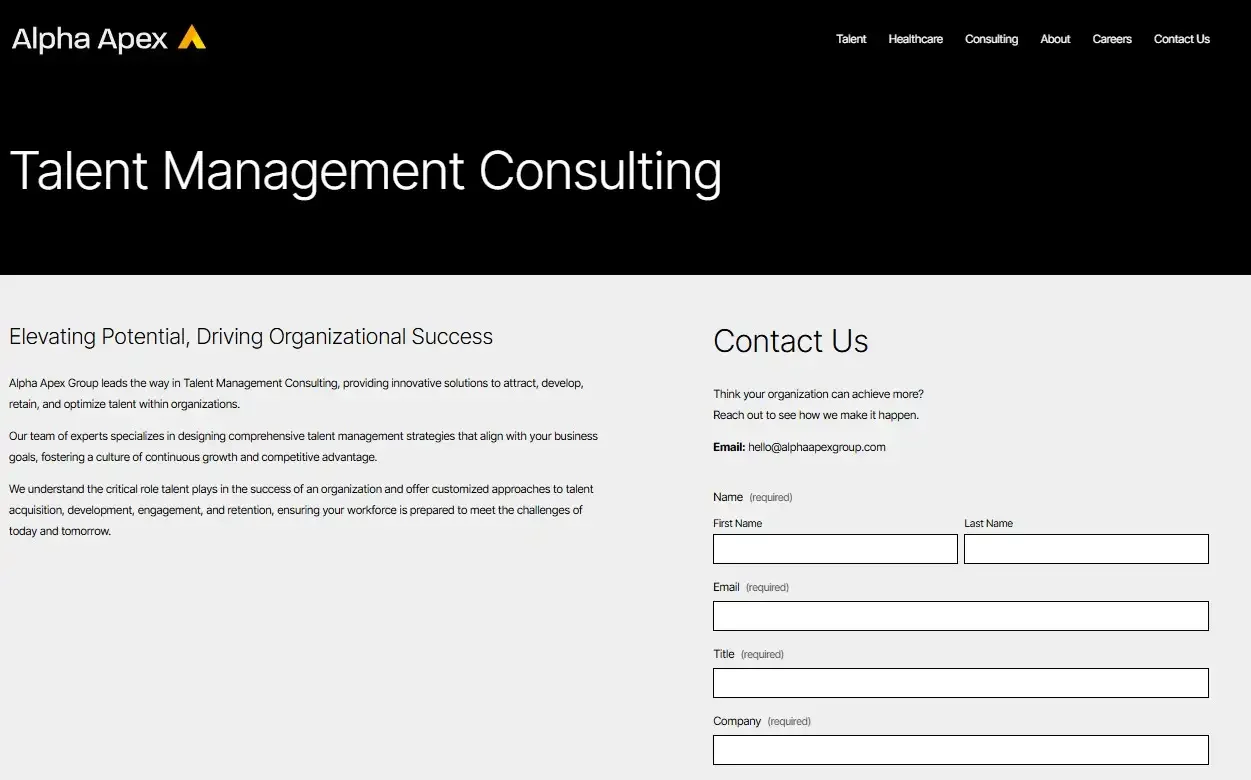
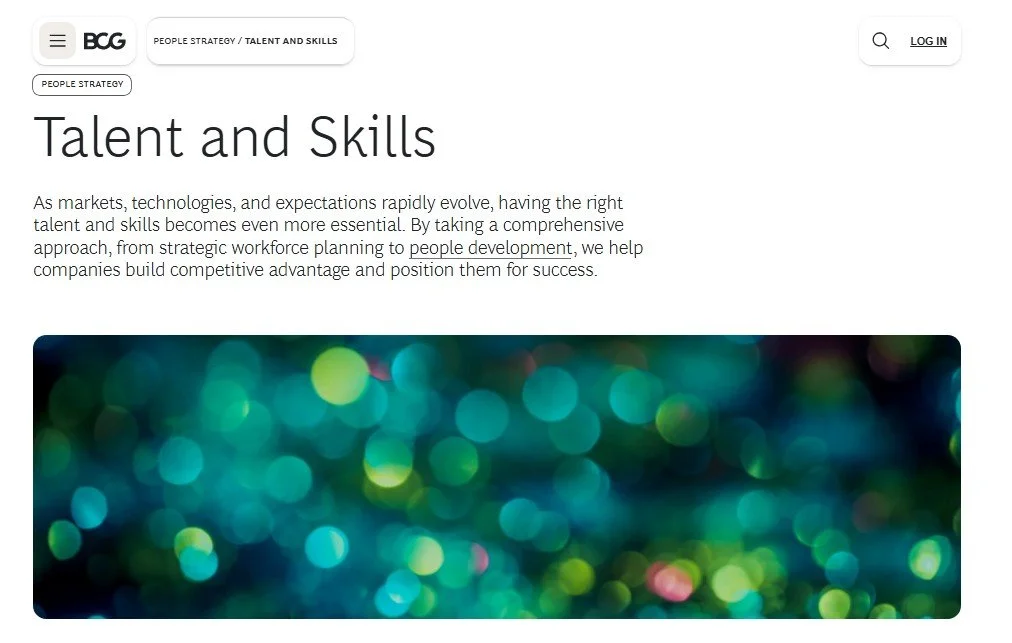



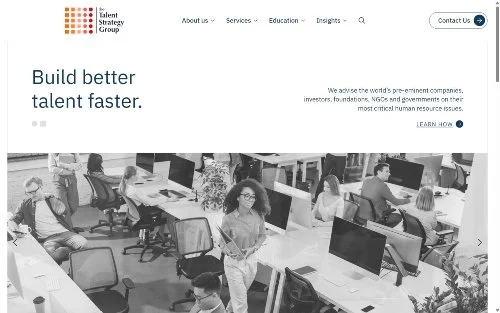
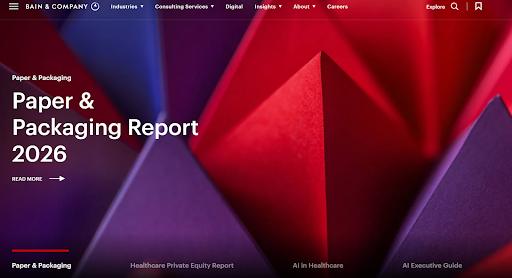
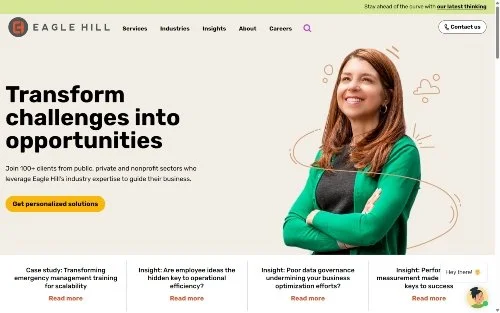
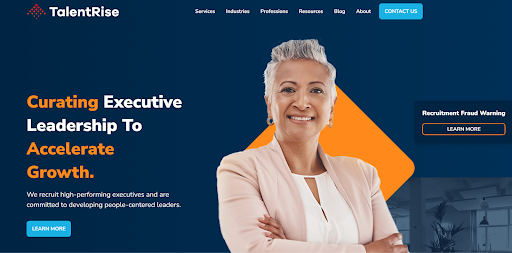
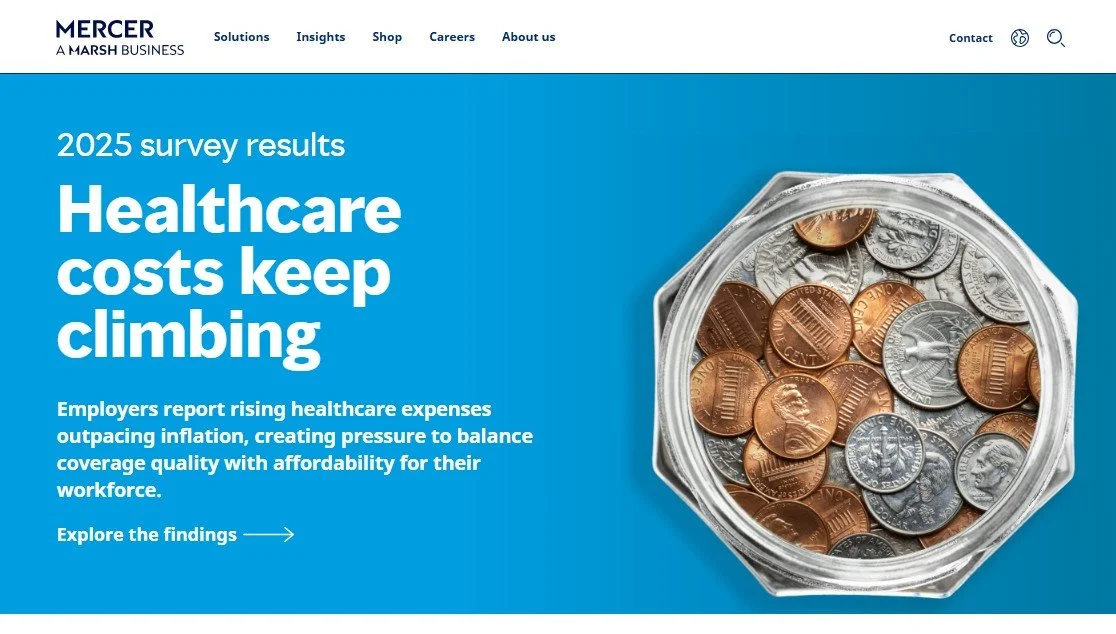
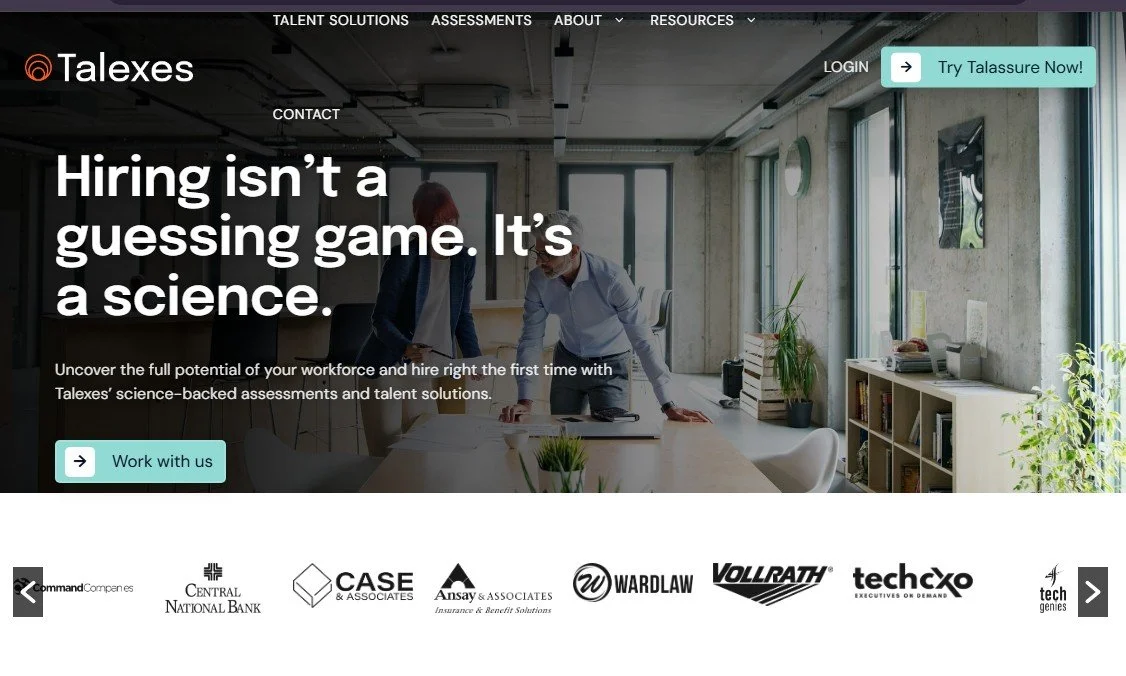
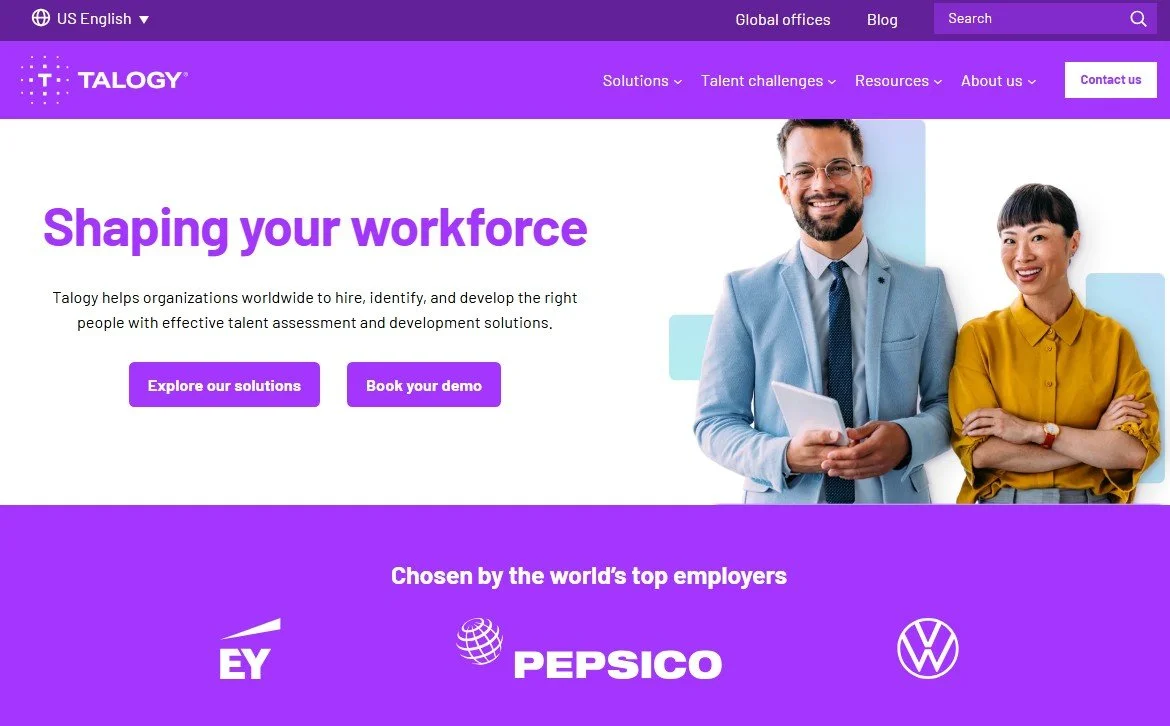
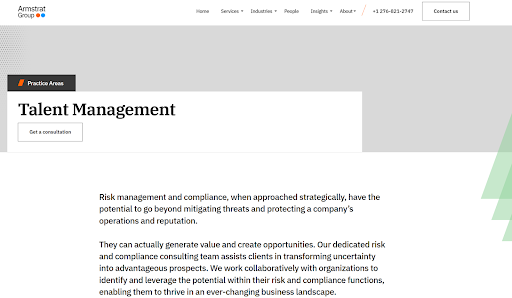


![Top 15 HR Consulting Firms in Denver [February 2026 Update]](https://images.squarespace-cdn.com/content/v1/65bd0965904e7e695a70ed54/1762892544846-I6215EVUYNGMYKI4V8AM/Top+HR+Denver.jpg)
